OCZ Vector (256GB) Review
by Anand Lal Shimpi on November 27, 2012 9:10 PM ESTAnandTech Storage Bench 2011 - Light Workload
Our new light workload actually has more write operations than read operations. The split is as follows: 372,630 reads and 459,709 writes. The relatively close read/write ratio does better mimic a typical light workload (although even lighter workloads would be far more read centric).
The I/O breakdown is similar to the heavy workload at small IOs, however you'll notice that there are far fewer large IO transfers:
| AnandTech Storage Bench 2011 - Light Workload IO Breakdown | ||||
| IO Size | % of Total | |||
| 4KB | 27% | |||
| 16KB | 8% | |||
| 32KB | 6% | |||
| 64KB | 5% | |||
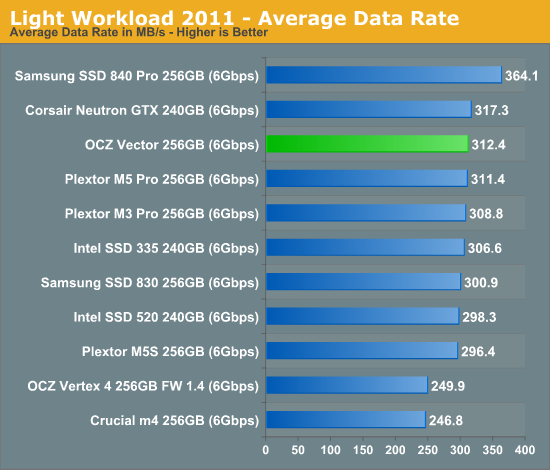
Our light workload remains Samsung's safe haven with the 840 Pro. OCZ's Vector does improve performance considerably over the Vertex 4 (+25%) but Samsung manages a 16% performance advantage here with the 840 Pro.
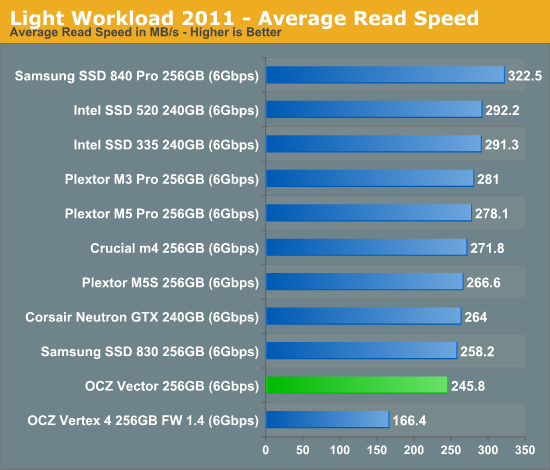
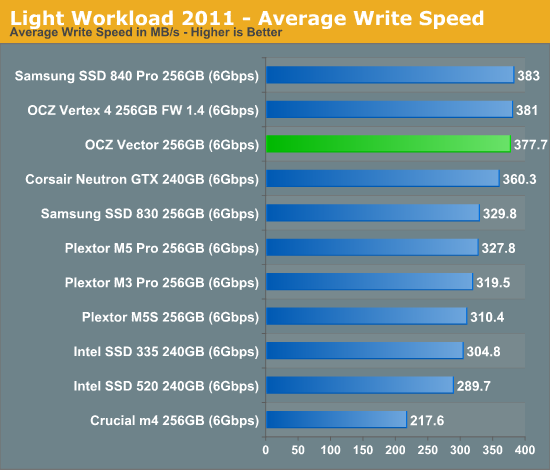
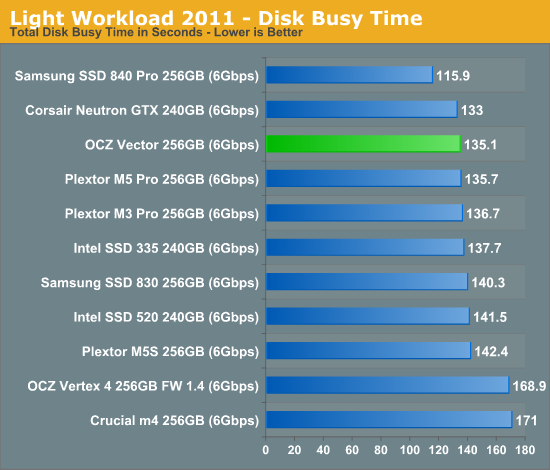
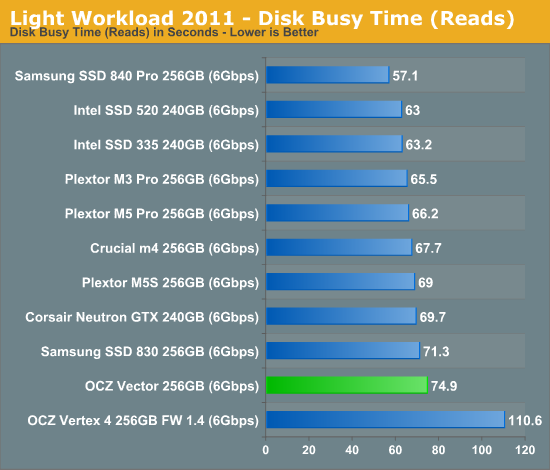
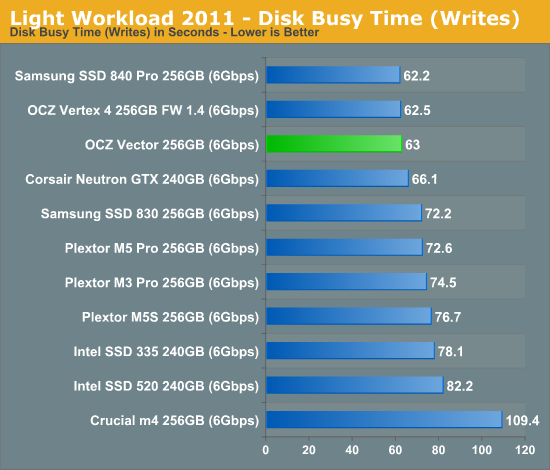










151 Comments
View All Comments
Anand Lal Shimpi - Wednesday, November 28, 2012 - link
The write amount does actually scale with capacity, OCZ just tried to simplify things with how they presented the data here. In actuality, even the smallest capacity Vector should be good for more than 20GB of host writes per day x 5 years.Take care,
Anand
jwilliams4200 - Wednesday, November 28, 2012 - link
Wait, what? I thought OCZ claimed the warranty was the same for all capacities, 5 years of 36TB, whichever comes first.Are you saying that the 36TB number is only for the 128GB Vector, and the other two have double and quadruple that amount allowed before the warranty runs out?
Kristian Vättö - Wednesday, November 28, 2012 - link
OCZ only says 20GB of writes a day for 5 years in the Vector datasheet, no capacity differentiation:http://www.ocztechnology.com/res/manuals/OCZ_Vecto...
JellyRoll - Wednesday, November 28, 2012 - link
These endurance tests that they use to generate the predicted life of the SSD are with 100% fill and full span random writes. This prevents the SSD from doing many of the internal tasks as efficiently that reduce write amplification. You would need to be doing full span random writes to see these types of endurance numbers.Free capacity on the drive, and different types of data other than 4K random will result in much higher endurance.
These numbers are intentionally worst case scenarios.
A5 - Wednesday, November 28, 2012 - link
If your usage case is saturating a Gigabit connection 24/7, you need to be buying SLC Enterprise drives (and get a better network connection :P).36TB doesn't sound like much if you're making up crazy scenarios, but that is probably near a decade of use for a normal power-user. Another way to put it is that you'd have to re-install a 12GB game 3,000 times to get that number..
seapeople - Sunday, December 2, 2012 - link
But if you reinstall a 12GB game four times per day, and eight times on a Saturday, then your drive could be worn out after just three months!It's a reasonable use case for someone who only wants to spring for the budget 40GB SSD, but still wants to oscillate between playing four large games on a daily basis.
jwilliams4200 - Monday, December 3, 2012 - link
Your math is off. That is only 713GB.jwilliams4200 - Monday, December 3, 2012 - link
Oops, my math is off, too. But yours is still off.3 months is 13 weeks, so 13 Saturdays and 78 non-Saturdays.
12*(4*78 + 8*13) = 4992GB
So you have to do that 7.2 more times to get to 36TB, which is about 1.8 years.
jeff3206 - Wednesday, November 28, 2012 - link
Vertex, Octane, Agility, Synapse, Revodrive, Z-Drive, Velodrive and now Vector, plus an array of generation numbers and suffixes. Could OCZ's flash product naming system be any more complicated?Numerical product names may not be sexy, but they sure are easy to understand.
wpcoe - Wednesday, November 28, 2012 - link
Chart on first page of review shows Sequential Write speed for 128GB model as 530MB/s, when the OCZ site (http://www.ocztechnology.com/vector-series-sata-ii... shows it as 400MB/s.